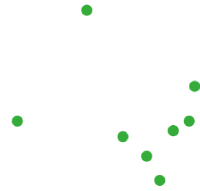What is Strata?
A strata scheme is a building or a collection of buildings, where individuals each own a small portion (eg. an apartment or townhouse) but where there is common property (eg. external walls, windows, roof, driveways, foyers, fences, lawns and gardens) which every owner shares ownership over.
What is Strata Title?
The original concept of strata title was to allow people to own their flats in multi-level buildings. It is a means by which a person can buy and own property; which might be a substantial distance above ground level. Before strata title, the most common way of buying into a high rise building was to buy shares in the company which owned the building thus giving a right to occupy one of more of the flats. This is commonly called ‘company title’.
NSW Office of Fair Trading “Buying into a strata scheme?” 2006
What is Common Property (in a Strata Scheme)?
Common property is that part of a Strata Scheme that is owned by everybody, not any one individual. Technically it is defined as “so much of a parcel as from time to time is not comprised in any lot.” The ‘parcel’ is the land (i.e. the lots and common property combined) on which the strata scheme is based. It therefore follows that anything that is not part of a lot is part of the common property. The strata plan (together with any strata plan of subdivision or strata plan of consolidation) is an essential tool to identify the common property.
What are 'Unit Entitlements' and what are they used for?
Every strata plan contains a list of the lots in the strata scheme and a corresponding allocation of a ‘unit entitlement’. The unit entitlement is a whole number and the total of the unit entitlements on the plan is called the ‘aggregate unit entitlement’. The unit entitlement is used to determine the lot owner’s;
- Share in the common property
- Voting rights when the voting is conducted by means of a poll.
- Right to share in distributions of surplus monies in the owners corporation’s administrative or sinking fund.
- Right to share in compensation monies paid by any public authority resuming the whole or part of the common property.
- Proportion of maintenance levies; and
- Obligation to contribute to repair and maintenance of common property under a joint exclusive use by-law.
What is a Lot?
A lot can be either a unit, town house, garage which gives the rights of ownership to either an individual or company, however does not include any structural cubic space.
What is an Executive Committee?
An Executive Committee is formed by persons who have been nominated and elected by the owners of an Owners Corporation to administer the Strata Scheme.
What are By-Laws?
These are a set of rules that all occupiers living in a Strata Scheme must abide by and have been registered at the time the Strata Scheme is registered. By-laws can be added, repealed and amended at a general meeting.
What is a Levy?
Under the Strata Schemes Management Act 1996, it is required that the Owners Corporation determines the amount that will be raised in the year for the general running of the scheme. This amount includes expenses required for the upkeep and maintenance of common property and is paid by the owners to the Owners Corporation. This is known as a levy and is determined at the Annual General Meeting.
Levies are calculated according to the unit entitlement of each lot. All monies raised are held in a trust account by the agent on behalf of the Owners Corporation.
What is the difference between the Administrative Fund and the Sinking Fund?
Administrative Fund: This fund is used for the day-to-day expenses relating to common property; e.g. payment for insurance and common property repairs.
Sinking Fund: This fund is used to cover all future capital expenses arising, such as painting of the common property, renewal and replacement of gutters, down pipes and fences to name a few.
Are there any penalty fees for late payment of a levy?
The legislation states that levies which are not paid on time one month after the due date shall “bear interest at an annual rate of 10% until it is paid”. e.g: Should the levy be due on the 1st of January, no interest will be charged if the payment is made by the 31st of January. If payment is not made on the due date, as of the 1st of February interest will be applied as of the 1st of January and will accrue on a daily basis there after.
What is a Special Resolution?
It is a resolution passed at a general meeting of the Owners Corporation against which no more that 25% of the votes is cast.
Contact Us
Got a question? Contact us quickly and easily using the following form and we will get back to you ASAP.




